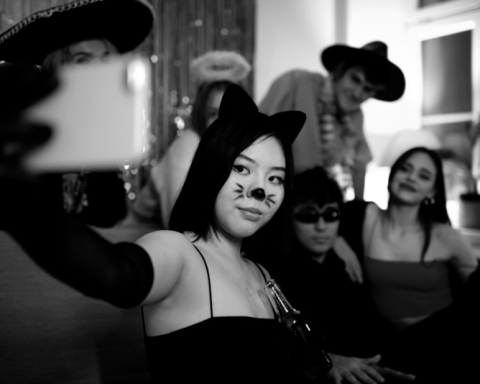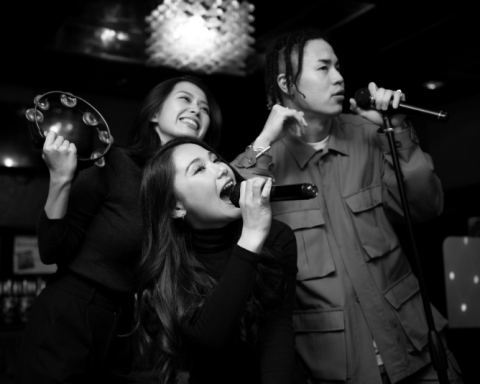From The Beatles, Britney Spears, Justin Bieber, to BTS, people across worlds and eras have adored different personalities. Some people even belong to fandoms, which are enthusiastic groups of supporters of someone or something. It’s not only limited to musical performers but also actors, athletes, and influencers. Indeed the number of individuals who are involved in fandoms varies.
However, the State of Fandom 2022 found that it peaks during adolescence. According to a study, these idolizations are driven by adolescents’ self-expression, achievement of independence and intimacy, as well as a part of their identity construction.
But what happens when this celebrity adoration crosses the line to become celebrity worship? This article will provide the needed information for parents to recognize unhealthy celebrity worship and how to handle it.
What is celebrity worship? And how does it look?
Despite being a common characteristic, you need to be mindful of the degree of the teen’s idolization to the possibility of it becoming celebrity worship. Based on definitions from various sources, celebrity worship is an obsessive feeling of admiration and reverence toward famous individuals without considering their flaws and negative qualities. Based on Maltby and his colleagues’ study, celebrity worship can be classified into three categories:
Entertainment – social
This group represents individuals with low levels of celebrity worship. The “entertainment-social” term refers to the attractions these individuals have, based on their idols’ entertainment capabilities and their enjoyment of connecting with friends or other companions who share the same interest. At this level, adolescents manifest their devotion by staying up to date with celebrities’ lives through the media.
Taylor Swift’s fans (widely known as Swifties) can be an example. Swift is known to hide easter eggs to hint at her future releases or extra features. It could be hidden in her music videos, tweets, and interviews. As a result, Swifties develop various fan theories by keeping track of Swift’s updates on social media.
Intense – personal
The medium level of celebrity worship is characterized by the individuals’ intense personal feelings toward their idols. These affections are compulsive and intense to the point of over-obsessing the details of their favorite celebrities. For instance, teens could be invested in the celebrity’s love interest or even consider celebrities as their soulmates.
Borderline pathological
Social-pathological behaviors and attitudes highlight the highest level of celebrity worship. Although both groups display an obsessive fascination with celebrities, their compulsive behaviors are what sets them apart from the intense-personal group. These behaviors are obsessive and harmful to the point where they are willing to do anything to please the celebrity.
How does excessive celebrity worship affect adolescents?
Cyberbullying
Excessive idolization and cyberbullying have a strong intersection. As a result of rapid digital technology development, cyberbullying has become a common thing on social media. A study found that teens are willing to engage in problematic online behavior due to the urge to do anything to defend their idols. As a result, it could negatively affect the teen’s or even the celebrity’s well-being.
For example, Olivia Rodrigo’s fans sent many hateful comments and death threats to Joshua Bassett, Rodrigo’s ex, who is believed to be the inspiration for the drivers license song. The bashing went to the extent that Bassett was diagnosed with septic shock and hospitalized for nine days due to the stress.
Distorted body image
With the unrealistic beauty standards of celebrities, another detrimental effect of celebrity worship is how it affects teenagers’ body perception. As a result, adolescents experience body dissatisfaction that drives them to purchase various skincare and makeup products and the urge to undergo cosmetic surgeries. A study pointed out how this is caused by repeated exposure to celebrity images and how teens compare their appearance with celebrities.
Self-harm
One of the most horrifying cases of celebrity worship was the #cut4zayn situation in 2015, where One Direction fans posted pictures of their self-inflicted wounds on their arms to pressure Zayn Malik not to leave the band. A study pointed out how high levels of celebrity worship predicted self-injury and suicidal behaviors. It is due to strong emotional attachment toward the celebrity that causes teenagers to inflict self-harm behaviors.
Consumptive lifestyle
Most of the time, celebrities advertise products and lifestyles through various media. For that reason, fans may develop the intention of living the same lifestyle, which could affect their purchasing decision. Owning objects related to the celebrity generates a special feeling of tangible and emotional attachment for celebrity worshippers. As a result of seeking external sources of gratification, celebrity worshipers engage in compulsive buying behavior, even for the high price and long-term commitment.
What can parents do?
Support them
Even when your adolescents’ interest seems to make no sense, you should show commitment to understanding them. Negative stereotypes and criticism of worshippers would lead to isolation from their parents. By being supportive, parents can maintain a positive relationship with the adolescents and guide them in the right direction. This could be done by doing some research on their favorite celebrity and asking them questions such as:
- “What do you like about them?”
- “When did you start being a fan of them?”
- “Do your friends like them too?”
When their obsession with celebrities is starting to get out of hand, you can express concern and offer help in a non-judgmental way. This conversation could follow the steps below:
- Let the adolescents know that you are concerned
- Inform the children that you care about them and are ready to help
- Listen to their perspective instead of challenging their emotions and perceptions
- Ask, “what do you need from me right now?”
Encourage them to socialize and connect
The one-sided emotional bond, which can sometimes cross the border to be pathological, is rooted in their need for companionship. A study stated that celebrity worship is a way for individuals to compensate for the lack of friendship and social support they experience. Therefore, you need to motivate and facilitate your adolescents to connect with new people. Parents could do so by encouraging them to become members of clubs or activities that will broaden their social circle.
Educate them
Although you are less likely to become the primary role model for children in adolescence, you still significantly impact your teens’ attitudes and behavior. Thereby, you need to enact your role as an educator. The learning takeaway should revolve on:
What attraction is and how to express it properly
You can start this conversation by mentioning a scene from movies or TV shows. However, parents should keep in mind not to turn it into a lecture. You need to listen to your teens and be able to answer their questions honestly.
Reminding them about their worth and the importance of having their own identity
Often, teenagers forget their worth as a result of idolizing celebrities. So, you are responsible for ensuring your teens can form their own authentic identities. It is helpful to provide affirmations such as “I value everything that makes you who you are.”
Acceptable and unacceptable online behavior
To ensure your teen’s safety and well-being, ensure that they can utilize digital technology securely. To achieve this, you must educate your teens about online communication’s do’s and don’ts and the risks and consequences involved. It is a great idea to create a document called “Terms of Agreement” so you and your teens can agree on the ground rules for online behavior.
The way to spend money wisely
You play a critical role in shaping your teenager’s attitudes toward money. You need to enable your children to acknowledge how money is not an unlimited resource. A great way to communicate this is by discussing ways to differentiate between “a want” and “a need.” Using this practice allows them to prioritize their budget spending on things they need and not on things they merely want.
Help them plan a balanced schedule
To keep adolescents from spending most of their socializing time through social media, it would be better for you to facilitate their balanced schedule. You can create a calendar or scheduling app that includes family events, screen-free time, yoga classes, or any activities they may enjoy. However, the definition of a “balanced life” may differ for parents and teens. Thus, parents need to include their children in this planning creation.
In conclusion
Despite presenting various risks to adolescents, idolizing celebrities does not necessarily mean it’s terrible. A study on adolescents pointed out how this relationship appears to have inspired them, enhanced their self-determination, enhanced their relationships with others, helped them modulate negative emotions, exposed them to new cultures, introduced them to new friends, and helped them overcome shyness.
As with other things in life, too much of everything is as bad as too little. Thus, it is the parent’s job to ensure that the adolescents can maintain healthy adoration.
If you would like to know more about unhealthy celebrity worship in children and teens, the Life Management Science Labs’ (LMSL) Parenting Science Labs produces courses, certifications, podcasts, videos, and other learning tools. By using the research of the Institute for Life Management Science, the resource are science-based and proven by practice. Visit the Parenting Science Labs today.  Photo by Jarvik Joshi on Unsplash
Photo by Jarvik Joshi on Unsplash




